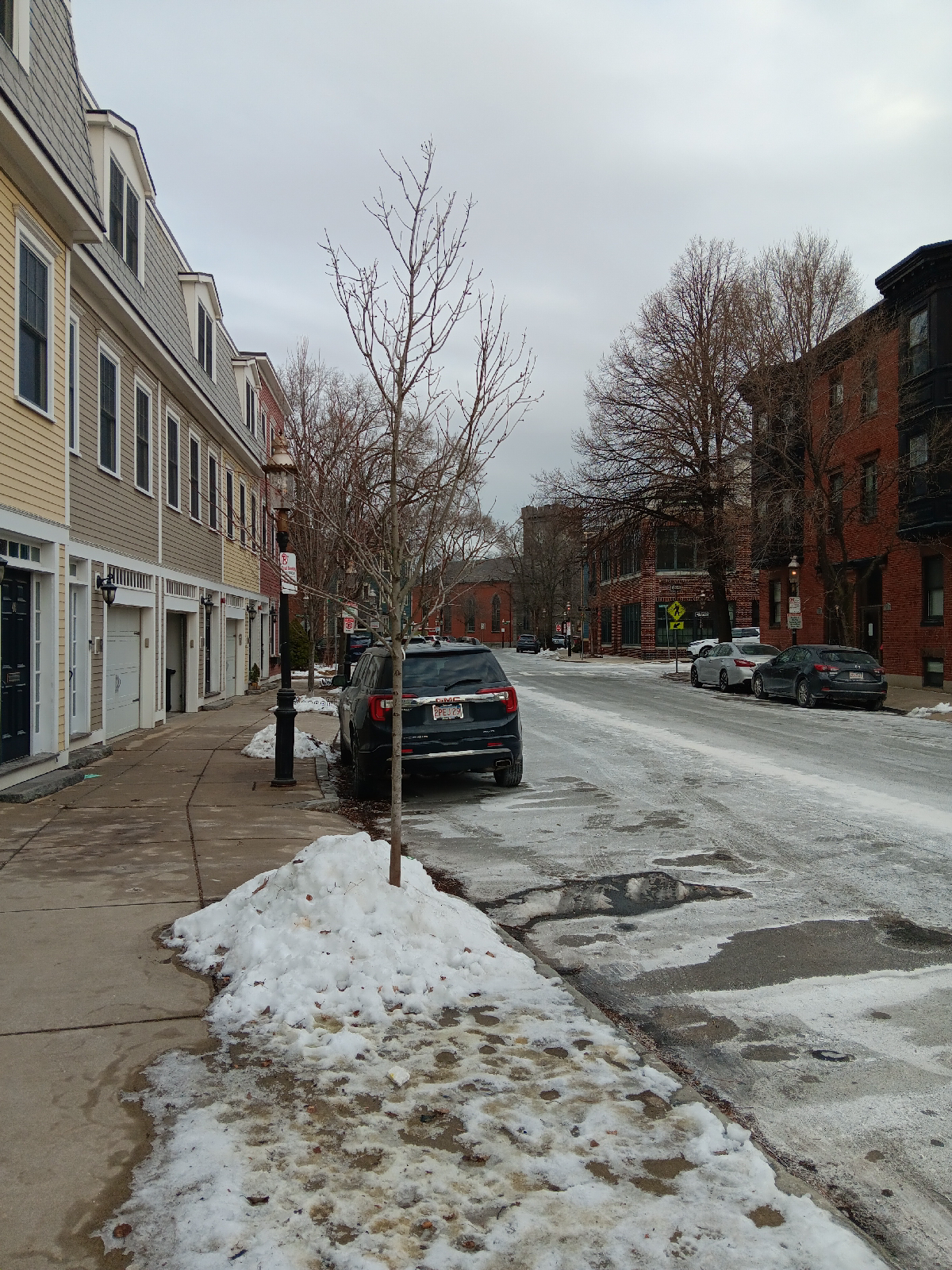I've mentioned here many times that Newbury Street, famous in the region for it's shopping, has been missing storefronts for over fifteen years, enough that I stopped counting with my kids after a few blocks because we hit over twenty. But the truth is that Downtown Crossing, previously famous for its shopping as well as easy access to the financial and political centers, has suffered longer. Before Barnes & Noble went on a closing spree, they closed their location downtown. Well, things change, but nothing replaced that location for over a decade.
The problem may have started in earnest when Filene's and its even more famous Filene's Basement went out of business and it took years to replace them (with a store my British friend tells me is known for using sweatshops, but who among us isn't?). As of 2010, the city of Boston seems to have ceded control of the area to the Downtown Boston Business Improvement District. Color me unimpressed with their efforts to improve foot traffic.
Yes, there are a lot of street people there now. There always have been, but it's taken on a more chilling aspect since the rise of the opioid epidemic, which became a public health crisis very quickly. Honestly, what the hell? We have all of these unhoused people--now including people desperately trying to get in through Mexico, regardless of where they've come from--and we've got people sleeping at Logan Airport. Why don't we repurpose the empty buildings downtown to house some of them? And while we're at it, how about some of those empty buildings on Newbury Street? The state of Massachusetts and city of Boston do not historically have a problem using eminent domain for other projects.
But yesterday I realized that the problem isn't confined. It has now spread to the North End--THE NORTH END--and I'm starting to think of this as something that is spreading, if not like a tumor, then like rot.
 |
| The corner of Cross and Hanover |
 |
| Cross Street |
I want to be clear that I'm not suggesting that the North End should remain Boston's version of Little Italy if there is an organic movement afoot for transformation. On Tuesdays I park myself at a cafe that is decidedly neither Italian nor Italian-American. It is also (*gasp*) part of a local chain. I don't think it's a terrible development that such a space exists. And while I mourn the loss of the best pastry shop in that part of town--Maria's on Cross Street did not have the bells and whistles of Mike's or Modern, but what it did do, it did perfectly--there is something now in that space, so I don't include it in my list of losses. The problem is when there is nothing.
There are other examples in the area, but this is the most glaring (those two famous pastry shops are on Hanover Street, and when you come on foot to the North End from the major streets of Tremont or Washington, Cross Street is what you see). Of course, the activity outweighs the emptiness, but when seen while holding the visuals of what the rest of Boston is starting to look like, it's disturbing.
I do not know why this is the case, but my first guess is high rents, necessitated by the high mortgages. Honestly, this has never made sense to me; I can't believe it is more profitable to let a property in a "good" neighborhood lie fallow than it is to take a temporary break on the rents. It makes me think that greed and/or very bad math is also part of the explanation.
The North End does not yet suffer from the Potemkin Buildings--residential and otherwise--that plague many neighborhoods in Boston, and I hope it does not. (It would make me laugh that so many developers are building housing and office space for rich millenials who don't seem to favor Boston if it weren't for 1) the need for housing for other people who aren't in that target demographic and 2) that you can practically smell the foreclosures and abandonment coming our way. Maybe we contrive tales of unicorns to distract from true stories of wolves.)
I hope the North End is bursting once again at the seams with businesses, a mix of old neighborhood favorites and newer places that everyone wants to visit. And I hope Boston itself stops feeling like something that might be dying.
Deb in the City














![Commonplace_book [the librarynth] librarynth.org](https://blogger.googleusercontent.com/img/b/R29vZ2xl/AVvXsEgEEl8GkH2usYyi0rcAgKHppuIgYNQ0_Ln33vggsbnOzfRoYOrSfMb54GwCPCPnXBdWcgNph_RrXj4oizgXbSJKWc4lVkEOw58K_z3FhJt0NZ2ZsWvmvwRw2qJLRH1eU4oMHPxuaagjGGumBRbW3iKwd4QGZs4VzVqUbAgqeyiFnQRkKexmYhdN9rsrwR0/w400-h248/commonplacebook.jpg)
